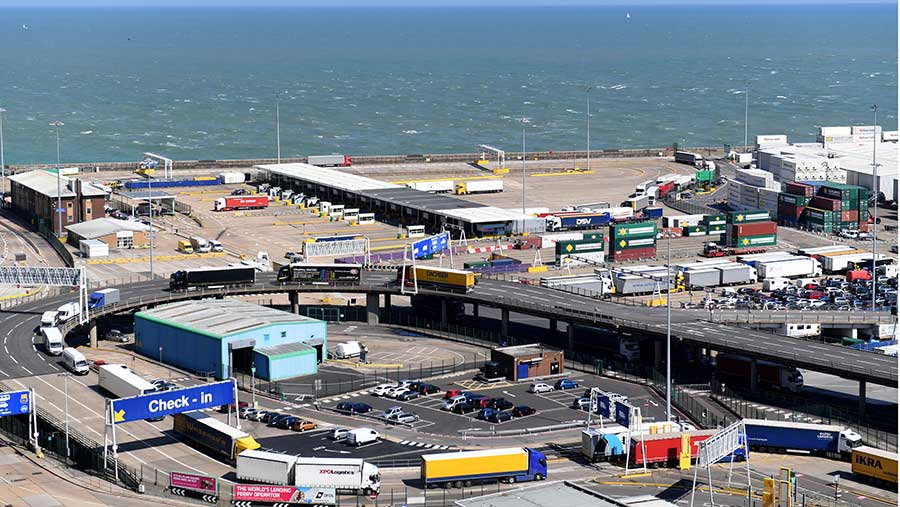Defra to receive just £35m from £1bn no-deal Brexit pot
 © Facundo Arrizabalaga/EPA-EFE/Rex/Shutterstock
© Facundo Arrizabalaga/EPA-EFE/Rex/Shutterstock Defra has been allocated just £35m of the £1.1bn set aside by the Treasury for no-deal Brexit planning, with the money expected to be used primarily for IT support and communications purposes.
The total funding package was announced by government last week, with an extra £2.1bn made available by chancellor Sajid Javid in response to the increasing likelihood of a no-deal Brexit on 31 October.
See also: Government mulls £500m no-deal rescue package for beef and sheep
Of this, £1.1bn is being made available immediately for matters such as more border force officers, better port infrastructure and securing access to medicines, with a further £1bn held in reserve.
Some of the money – £138m – will be used for a public information campaign – in part targeting the thousands of small businesses that have not even registered as exporters, as will be required in a no-deal Brexit.
Another £108m is being spread across government departments to “promote and support businesses, to ensure they are ready for Brexit”.
Farmers Weekly first approached Defra for details of how much it would receive and how the money would be spent. It suggested we direct our questions to the Treasury.
From this source, Farmers Weekly understands that Defra is being allocated £35m specifically, which will be spent on areas such as IT systems to support agri-food businesses and a national communications programme.
But food and farming will also benefit from the £344m that is to be spent on new border and customs operations, which is designed to help multiple sectors of the economy.
‘Drop in the ocean’
Responding to the developments, NFU Brexit director Nick von Westenholz described the funding as a “drop in the ocean” compared to what will be needed to support agriculture in the event of a no-deal Brexit.
“A back of the envelope calculation shows that, just for the sheep sector which exports about £400m of product a year to the EU, the tariff hit from a no-deal Brexit would amount to over £180m.
“For beef the tariff cost is higher still – and that is before you consider the impact of border delays and extra paperwork.”
Mr von Westenholz said it was “imperative” that Defra ramped up its preparations, prepared suitable contingency measures and communicated clearly what farming could expect in a no-deal scenario.
Headage payments
Meanwhile, it is understood from Defra sources that plans for a £500m beef and sheep buy-up scheme – as rumoured in the national media last week – are not part of the government’s thinking.
A more likely scheme is thought to be one based on headage payments as a way of supporting farmers’ incomes in the event of a no-deal Brexit – though this would only be a stop-gap measure as the UK has a long history of opposing production-linked payments.
As for food imports in the case of a no-deal Brexit, last March the government published a schedule of tariffs that would apply to some food products, to provide some protection from cheap imports.
Lamb would enjoy the same level of tariff protection as it currently receives in the EU customs union. But beef tariffs would be halved, while butter tariffs would fall by two thirds, putting downward pressure on prices.
Some products, such as eggs, cereals, fruit and vegetables, would have no tariff protection at all.
It remains to be seen whether the new Boris Johnson government sticks with this plan in the event of a no-deal Brexit.
